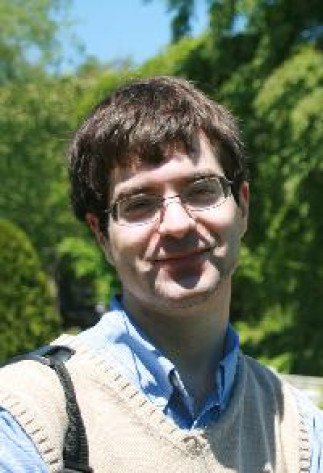Nanofluidic Devices for Single-Molecule Analysis, Manipulation and Control
Walter Reisner
Biological & Biomedical Engineering
McGill University
Présentation en anglais
Vidéoconférence, Zoom #: 81007662178 (Zoom link)
Lorsque demandé, indiquer 'Un Sept Quatre Neuf' en chiffre.
Abstract: Nanofluidic devices, e.g. based on nanochannels or nanopores, are networks of fluid-filled structures on a chip with dimensions ~1-100 nm. These dimensions are on order of key molecular length scales and give rise to new physical behaviours and capabilities, such as the ability to directly analyze and manipulate single biomolecules. Single-molecule devices have potential in the biosciences, for example conferring the ability to perform genomic analysis without need for molecular amplification. Hand in hand with application goals, we explore the physics of macromolecules in confined/constrained environments, and use ‘artificial’ nanofluidic structures to model nanoconfinement in biology.
In this talk I will focus on three different projects involving the interplay of new fabrication techniques/device concepts, application goals and physics questions related to confined/constrained polymers. Firstly, in collaboration with the Grutter group we have developed tip-controlled local breakdown (TCLB); this technique uses a conducting atomic force microscopic (AFM) tip to form a nanopore in a synthetic membrane. TCLB combines the ease of classic dielectric breakdown and nm pore positioning of particle milling techniques. Secondly, in collaboration with nanopore start-up Nooma Bio, we have developed a dual nanopore device that features feedback-driven dynamic control over single translocating dsDNA. This control logic can be used to dynamically adjust the opposing forces and scan the DNA molecule back and forth (“DNA flossing”). We demonstrate the ability to perform 100’s of multi-scan cycles of a DNA molecule labeled with sequence specific tags. Lastly, we use pneumatic control over confinement to trap DNA molecules in a nano-size compartment with varying anisotropy (“DNA in a box”). This system enables us to explore how multiple interacting DNA molecules in a confined anisotropic cavity can give rise to new forms of static and dynamic organization. Our findings are reminiscent of behavior observed in experiments in live bacteria.
Cette conférence est présentée par le RQMP.

